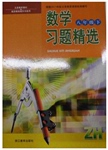题目内容
Some students who had graduated visited their university professor. The conversation soon turned into complaints about stress in work and life. To offer his guests coffee, the professor1.(go) to the kitchen and returned with a pot of coffee and2.variety of cups—porcelain, plastic, glass, some plain-looking, some expensive—telling them to help3.to the coffee.
4.was when all the students had a cup of coffee in hand that he said, “All the nice-looking expensive cups have been taken up, 5. (leave) behind the plain and cheap ones. Actually, the cup itself adds no quality to the coffee. 6.all of you really want is coffee, not the cup.You consciously went for the best cups, 7.then you began eyeing others’ cups.”
“Now consider this: Life is the coffee; the jobs, money and position in society are the cups, 8.are just tools to hold and contain life. The type of cup we have does not change the quality of life . If we concentrate only 9. the cups, we fail to enjoy the coffee. I 10. (true) hope that you will never let the cups drive you ... enjoy the coffee instead.”
 习题精选系列答案
习题精选系列答案

 g on the hillside overlooking the bay and near the island of the Gugh, it might just win the prize for best beer garden view in England.
g on the hillside overlooking the bay and near the island of the Gugh, it might just win the prize for best beer garden view in England.